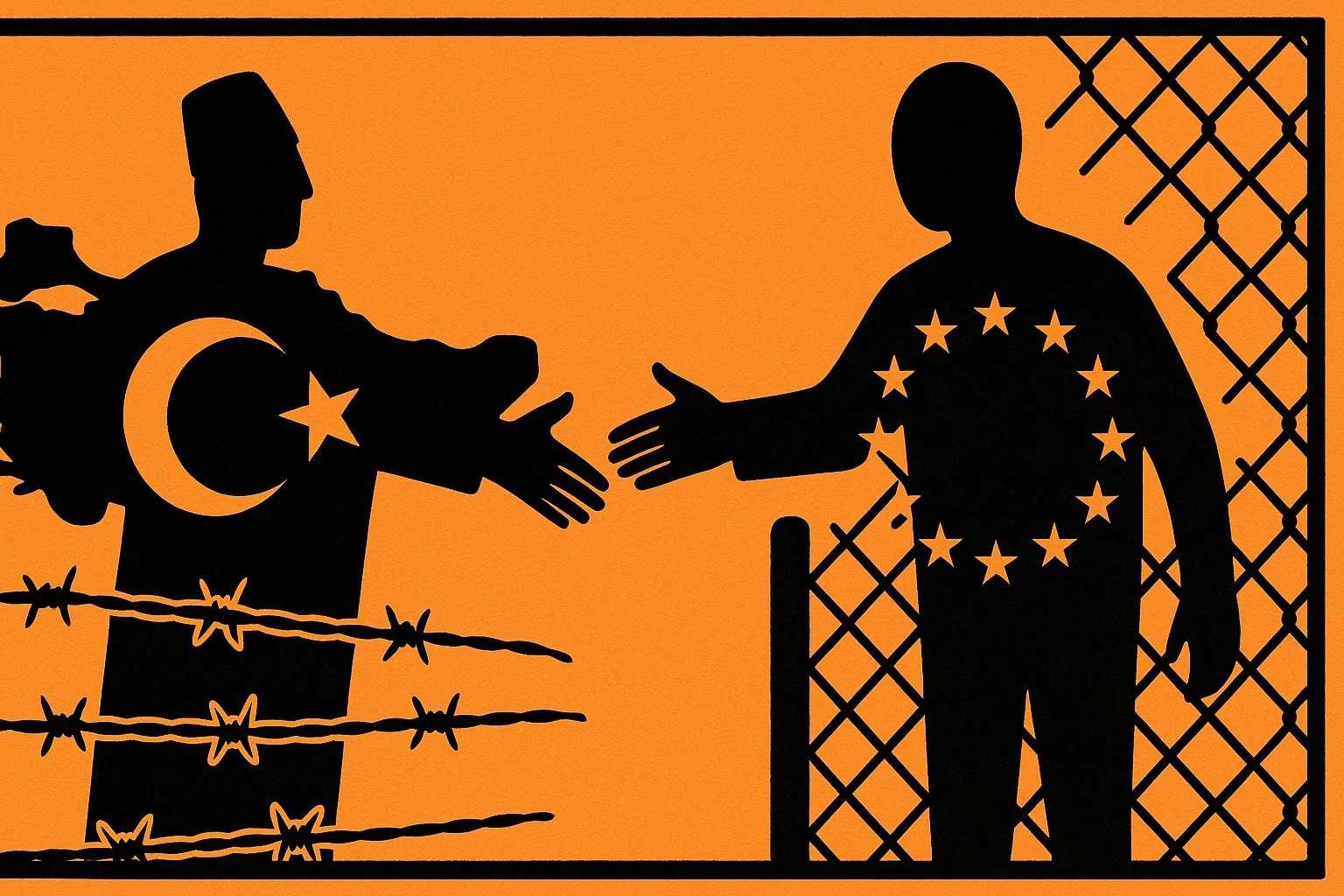Relations between Turkey and the European Union are at a watershed moment in which Ankara is no longer a "candidate for accession" but a "necessary but difficult partner".
In the latest European Commission report (November 2025), Ankara's role in border control and hosting refugees was praised, but on the other hand, the decline in freedoms and judicial independence was sharply criticized. In short: the EU praises Turkey when it protects its borders, and punishes it when it demands membership.
Since 2016, with the failure of the coup attempt, Ankara has tightened its political grip, and its ranking in freedom indicators has fallen to critical levels (33/100), ranking it as an "unfree country" in the reports of international institutions. Europe sees this as a retreat from the "Copenhagen values," while Turkey accuses the EU of double standards - it deals softly with other countries that do not respect freedom when it serves its interests.
On migration, Turkey has turned into the "gatekeeper of Europe."It hosts more than 3.6 million refugees and keeps the flow of migrants under control in exchange for more than 12 billion euros in European support. Despite tensions, this cooperation based on interest rather than trust continues: Europe needs Ankara to control the borders, and Ankara uses the issue as a political and economic leverage.
Economically, trade between the two sides reached more than 210 billion euros in 2024, but customs union modernization has been frozen for years due to European political conditions related to human rights.Ankara believes that the EU is using the economy as a pressure weapon, while Brussels insists that there are no "privileges without reforms."
Geopolitically, Turkey cannot be ignored: it is a key player in energy and security in the Black Sea and Eastern Mediterranean, balancing between Moscow and the West, and participating in gas corridors that feed Europe. Yet the EU refuses to reward it with political rapprochement, preferring to keep the relationship within the framework of "necessarily imposed cooperation."
The internal European divide further complicates the scene: the southern countries (Italy, Spain, Greece) support dialogue, while the northern countries (Germany, the Netherlands, Sweden) insist on democratic standards. The result: a double European policy, cooperating with Ankara by day and condemning it by night.
The future of the relationship is open to three scenarios:
Continuation of the status quo - cooperation without a political horizon.
New conditional partnership - modernization of the customs union in exchange for specific reforms.
A gradual breakup-a quiet disengagement if the political stalemate persists.
But more likely the relationship will remain in the same gray area: an imposed rather than optional partnership, with much cooperation and little convergence.
In the end, Turkey remains for Europe "the indispensable partner...that cannot be fully embraced."
To view the video and read the full analysis paper, please scroll down to the bottom of the page. 🔻

Comments